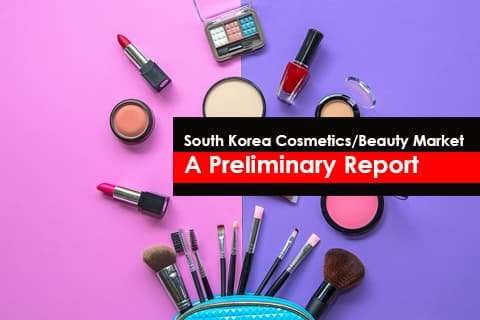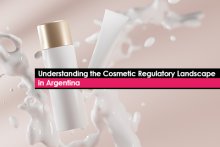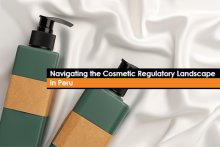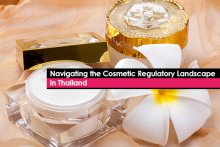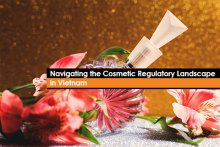The Korean beauty market is valued at USD 13 billion, making it one of the top 10 beauty markets in the world and offering a pool of business opportunities for manufacturers. Most of the brands are successful in South Korea because rather than sticking to the classic brands, consumers prefer trying new products to suit their daily skin care routine. Be it customized products or textured cosmetics, new trends are always on the rise in South Korea. This provides a wide scope to the manufacturers to introduce their products.
Cosmetic Regulations in Korea
In Korea, there are two categories of cosmetics which are regulated by the Ministry of Food and Drug Safety (MFDS) under Cosmetics Act (Korean) (Act. No. 14264 of 2016 (Eng.)). They are:
- General Cosmetics – Cosmetics which are intended to be used for rubbing, spreading or spraying on the human body for beautification or to improve skin health or hair care.
- Functional Cosmetics – Products with the specific purpose such as skin whitening, wrinkled skin, preventing tanning or sun damage, fall under the category of functional cosmetics. On May 30th, 2017, four categories of quasi-drugs were re-classified as functional cosmetics, including hair colorants, depilatory, hair products for external use and bath care products.
To market/import a cosmetic product in Korea, manufacturers or marketing authorization holder (in case of import) are required to register themselves with the MFDS. Once registered, the manufacturers can market their products in Korea without any pre-market registration, though the products will be subject to post-market supervision.
In the case of functional cosmetics, they are required to be scrutinized thoroughly by the MFDS for their safety. The manufacturers are required to submit all the necessary information related to the product to the MFDS. Once approved, the manufacturing process of the product can be initiated. For placing the product in the market, manufacturers are again required to obtain safety approval from the MFDS.
Functional cosmetics which are to be exported and are not for domestic use are required to comply only with the importing country regulations. Cosmetic ingredients (except colorants, preservatives and sunscreen agents) are reported to be used without the approval of MFDS, but their safety is manufacturers’ responsibility.
Cosmetics Labeling Requirements
According to the Cosmetics Act of Korea, there are a few items which are mandatory to be included in the labels of the product:
- Cosmetic product name
- Address and trade name of the manufacturer or seller
- Name of all the ingredients (except ingredients like trace chemicals which are not harmful to the human body) used in the manufacturing of the product
- Ingredients’ weight
- Manufacturing number
- Cautions and indications such as “best before” or “use by” along with the date of manufacture
- Price of the product
- If the product is a functional cosmetic, the words “functional cosmetic” must be mentioned
Korea has a huge influence on the trends of the global cosmetics industry because of its innovative products which makes it one of the most desirable markets for Cosmetics manufacturers. Before entering the market, gaining the right knowledge about the Cosmetics regulations of Korea is highly advised. To know more about the Korean cosmetics industry and its regulations, consult a Regulatory expert in cosmetics. Stay compliant. Stay up-to-date.

